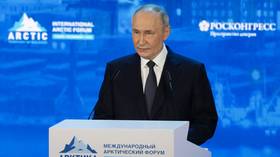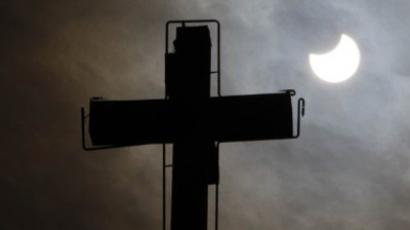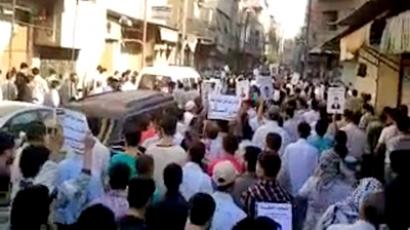Root of Syrian unrest: Politics or religion?
Britain, the US and France are pushing for harsher sanctions against Syria’s President al-Assad, who is believed to have ordered the torture and death of protesters. But on the streets there seems to be no real evidence of anti-government sentiment.
Even the poorest areas of the Syrian city of Homs – which, as a gathering place for people heading into the city center on demonstrations, saw major unrest – now seems quiet and secure.People on the streets told RT that most of the disturbances in the city are based on religious differences, not politics. People say they are not against the government, neither are they in pursuit of any political ends.Most of the controversy in Homs arises from differences between the Alawi and Sunni Muslims.The army maintains a presence to keep the area under control and prevent clashes between religious groups. But, as RT’s Irina Galushko reports, there are no tanks or any other heavy military equipment to be seen. In Syria, the period of noon prayers has become something of a traditional time for violence to break out as people pour out of mosques and into the streets. But life in Homs seems to be running quietly, the only stir being created by television crews filming in the middle of the day.















